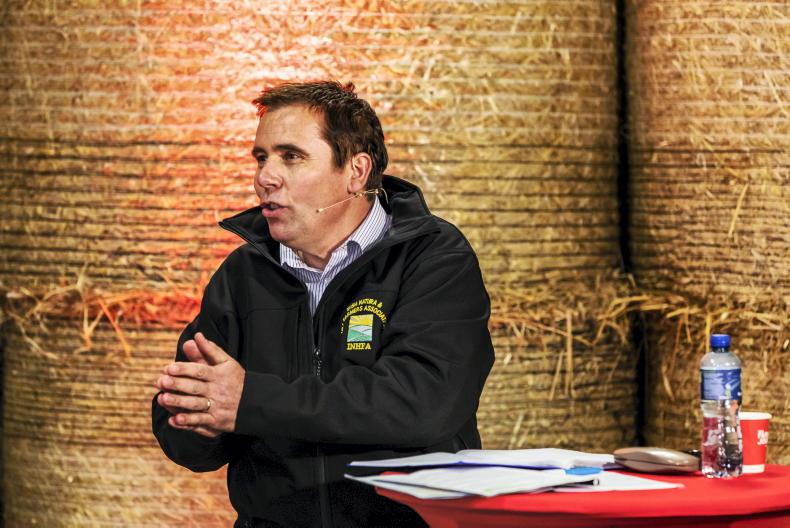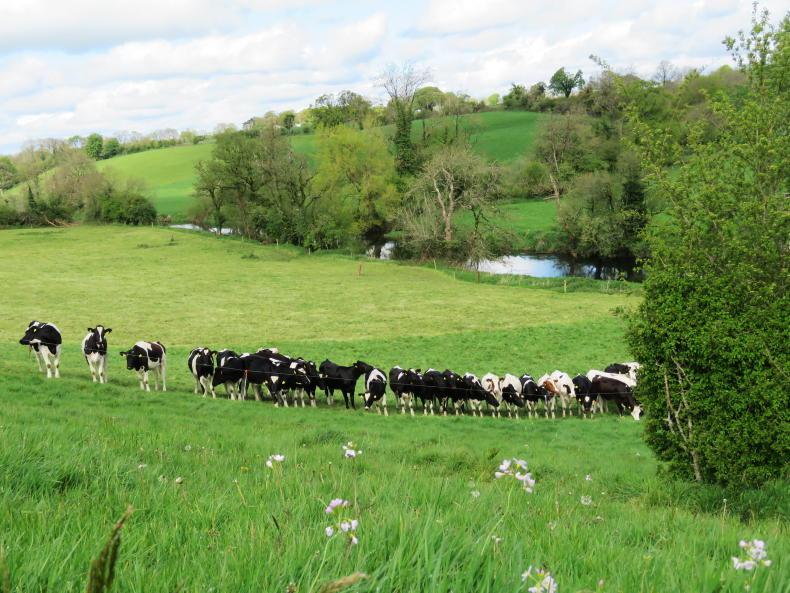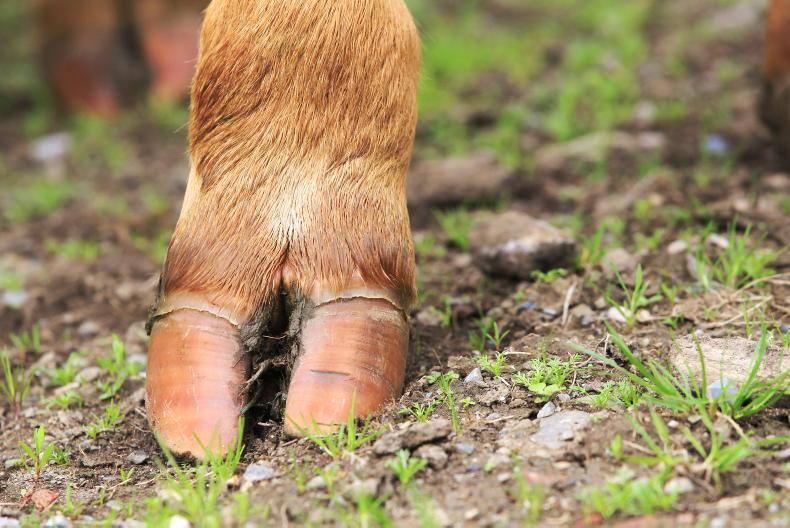Frustration is reaching boiling point among farmers who are desperately in need of environmental scheme payments. The Department of Agriculture, Food and the Marine (DAFM) has been criticised of late for delays in payments for the Green, Low-Carbon, Agri-Environment Scheme (GLAS) and the Agri-Environment Options Scheme (AEOS).
Cashflow is the one of the biggest issues on farms that were relying on these payments to pay mounting bills. The Irish Farmers Journal has heard of crisis stories such as farmers selling silage just to pay bills which should have been covered by scheme payments.
One farmer told us he could not spread his slurry because he owed his contractor money for silage the previous year. The Farmers’ Charter of Rights is a target DAFM sets itself to enhance the delivery of services and schemes to its clients.
In 2016, the delivery of the Basic Payment Scheme (BPS) payments was very much in line with the targets set out in the charter. However, the targets set out for environmental schemes in 2016 were not met. January 2017 has almost gone by and many farmers have still not been paid – three and half months behind target. As outlined in the timeline below, approximately 9,200 farmers in GLAS I and II are still awaiting payments. More than 2,600 farmers are awaiting GLAS + payments for 2016. Finally, approximately 2,500 farmers are still waiting for payments in AEOS.
Why have farmers not been paid?
The Irish Farmers Journal contacted the DAFM to find out the main reasons why so many farmers are awaiting GLAS and AEOS payments. It claimed that there are a combination of reasons causing the delays. Regarding the 9,200 farmers awaiting GLAS payments, the DAFM said that all GLAS payment applications are subject to a series of required regulatory checks and validations. Applications which have not been paid as they have not yet passed these checks for reasons including incomplete low emission slurry spreading (LESS) declaration forms, unreturned or incomplete interim commonage management forms, changes to GLAS land parcels on the BPS system, amendment of claims and some IT and data issues.
For AEOS, delays in payments relate mainly to farmers participating in AEOS II. Just over 4,150 AEOS II participants completed their five-year contracts on 31 December 2016 and approximately half have been paid. The DAFM said that under the EU regulations governing this scheme and all other area-based payment schemes, a comprehensive administrative check, including cross-checks with the Land Parcel Identification System, must take place before the final payment can issue. It said that because all AEOS II participants will be receiving their final payments under the scheme, re-checks on payments made for all scheme years must be completed before the final payment can be processed. For both GLAS and AEOS, the remaining cases are currently being checked and payments will continue to issue on an ongoing basis as these cases are cleared, according to DAFM.
One of the main frustrations farmers and planners claim is the lack of communication and feedback from DAFM about the slow payments. Farmers with delayed payments said they spent days trying to get in touch with DAFM via telephone and email but did not receive a reply or any correspondence to explain the delays. The DAFM said it is in contact with farmers where additional documentation and information is required to support their application. The contact details for the GLAS section are on the DAFM website. The dedicated GLAS telephone line is 0761 064451 or email glas@agriculture.gov.ie. The AEOS section can be contacted at 076-106 4456 or by email at aeos@agriculture.gov.ie
Laura Johnston, president of the Agricultural Consultants Association, said the BPS was handled well last year. “For BPS, there was a dedicated adviser helpline and email service that was well staffed. We could check straight away if a client was not paid,” explained Johnston.
She said that if there was an issue with a client’s payment, the Department staff would work with the planners to get the issue resolved quickly.
“It’s a different story for GLAS and AEOS, unfortunately. Farmers think we have a direct phoneline, but we don’t. We are ringing the same numbers they are,” she explained. Johnston said there has to be a more level playing pitch when it comes to schemes such as GLAS and AEOS.
“We are only given a six-week window to make applications for what is a complex scheme and if we miss the application deadline by one minute or make a mistake, there is no lee-way. The Department, on the other hand, is not tied down to a date and there does not seem to be any repercussions for late payments,” argued Johnston.
Johnston also pointed out that the submit button is still not live for online nutrient management plans (NMP). She said this system is two years in the making and feels Teagasc and the DAFM are dragging their heels on it. According to the terms and conditions of GLAS, NMPs must be completed by the first full calendar year in the scheme for farmers participating in GLAS I and by 31 March 2017 for farmers participating in GLAS II. Johnston says this is an impossibility at the moment and farmers should not be penalised for what is an incomplete system.
IFA reaction
IFA rural development chair Joe Brady has called on Minister for Agriculture Michael Creed to ensure that all farmers who are due payments under GLAS are now paid without any further delay. Brady said that the delays in GLAS and AEOS payments have caused a lot of frustration and concern on farms and have led to cashflow difficulties. Paying every farmer their first instalment now would alleviate some pressure, he said. Validations and checks could continue before final payment is made, according to Brady.
It seems a lot of kinks need to be ironed out within the IT system for GLAS, but some of the issues are coming from the planners and farmers side too. However, a properly functioning system should help to avoid mistakes happening in the first instance.
Many of the issues that are being dealt with now would have been apparent months ago and should have been resolved earlier.
When up and running, online systems are the best approach. But in this situation where some farmers have not been paid for a scheme they have been part of for almost two years, commonsense must prevail.
Minister Creed should see that farmers who budgeted for this GLAS money to enter their bank accounts back in October last year are in a very difficult situation now. Surely all farmers with delayed payments could receive their first instalment now and any clawbacks required could be made in the final instalment.









SHARING OPTIONS